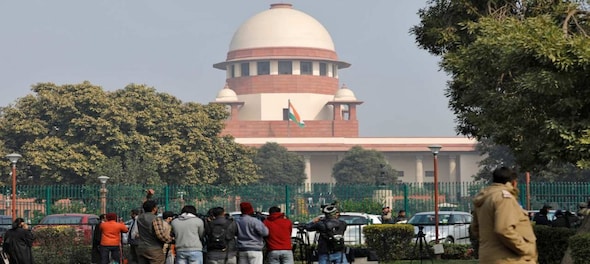
In a first, proceedings before three Constitution benches of the Supreme Court were beamed live through YouTube today, September 27. Three separate benches headed by Chief Justice UU Lalit, Justices DY Chandrachud and Sanjay Kishan Kaul heard cases challenging the 10 percent quota for economically weaker sections of the society, matters related to the recent Maharashtra political crisis, and the validity of the All-India Bar Examination, respectively.
The live streaming of the hearings was successful and many have lauded the initiative of the SC, while a few have raised concerns over safeguarding the misuse of the court hearings.
Expanding the court
The decision to live stream court proceedings was taken at a full court meeting of judges on September 20. In the future, the top court is expected to use a dedicated platform for live streaming of proceedings.
In 2018, the apex court noted that live-streaming of public-interest litigations was important. In the Swapnil Tripathi judgment of September 2018, the apex court had observed that such a move would ‘virtually’ expand the court beyond the courtroom.
It would also be the true realisation of the ‘open court system’ in which courts were accessible to all, The Hindu quoted Justice Chandrachud, who was on the bench then, as saying.
Although a first for the Supreme Court, six High Courts have already allowed live streaming of the hearings. The HCs of Gujarat, Orissa, Karnataka, Jharkhand, Bihar, and Madhya Pradesh, have already live streaming hearings through their own channels on YouTube.
Case for and against
There has always been a strong case for live streaming of hearings in SC for cases of constitutional and national importance as they impact various aspects of people’s lives. It will not just widen the public’s knowledge on legal matters but also enhance their engagement with the Constitution and laws, said experts.
“I think live streaming of Supreme Court proceedings is a welcome move since it results in effective and prompt real-time dissemination of proceedings at the comfort of your home and office. Once live streaming is extended to all courts for all cases, it would enable clients to watch it from the comfort of their homes without having to travel to Delhi. It will give them the entire context, the queries raised by the judges, what was argued and what was not,” said Nipun Saxena, an SC lawyer.
The move would also benefit lawyers and prevent overcrowding in the already clogged courtrooms, he added.
“Until now only the US Federal Court had a proper system of transcribing arguments made by lawyers. Live streaming would ensure that electronic transcription could be carried out sometime in the future,” Saxena stated.
In the United States, Providence Municipal Court Judge Frank Caprio runs a nationally syndicated television show ‘Caught in Providence’, which captures proceedings in his courtroom.
However, even though the US Judge’s televised court proceedings are popular, they cannot be compared with those in the Supreme Court of India.
“This is a court of law and appeal. The considerations before the highest court of this country are very different from a traffic court,” Saxena said.
Requires safeguards
Live streaming also requires safeguards against misuse of the courtroom proceedings, according to many.
“Indications already exist that snippets of the judicial process, once available in the public domain, are already open to both sensationalism and disinformation,” SC advocate Shadan Farasat wrote in the Indian Express recently.
Spliced videos of proceedings from HCs of Gujarat, Karnataka and Patna have been uploaded on YouTube with titles like “husband’s secret revealed when wife approached High Court” and “Angry avatar of Justice….”.
Some of these also end up demonising a judge or a lawyer. As most of these videos are anonymous, they can avoid any accountability, according to Farasat.
ALSO READ: IMD issues orange alert in Uttarakhand, rains affect 1.35 lakh hectares of farm area in Punjab
(Edited by : Sudarsanan Mani)
Check out our in-depth Market Coverage, Business News & get real-time Stock Market Updates on CNBC-TV18. Also, Watch our channels CNBC-TV18, CNBC Awaaz and CNBC Bajar Live on-the-go!


Andhra Pradesh Lok Sabha elections: A look at YSRCP candidates
Apr 25, 2024 6:54 PM
Lok Sabha elections 2024: Banks and schools to remain closed in these cities for phase 2 voting
Apr 25, 2024 5:33 PM
Andhra Pradesh Lok Sabha elections: Seats, schedule, NDA candidates and more
Apr 25, 2024 5:16 PM

